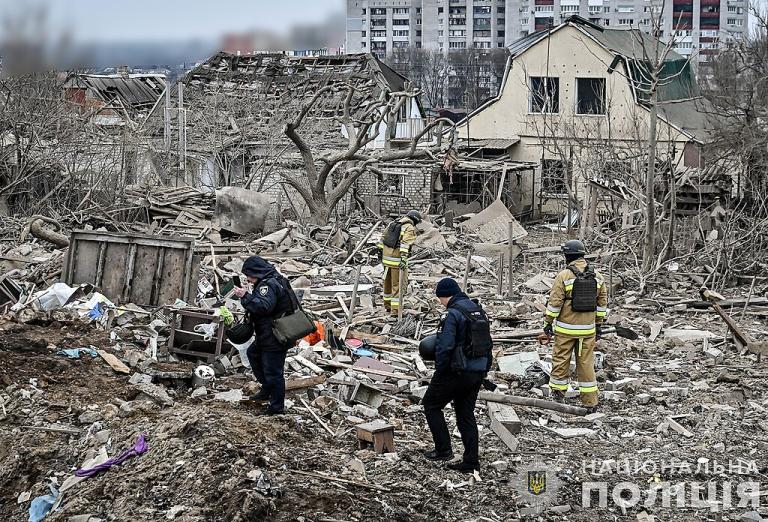Advent is a time for reflecting on the End Times. When Jesus tells us about the signs of the last days, for example, in Mark 13, He cites, along with some enigmatic events such as the “Abomination of Desolation,” convulsions that have become commonplace, such as earthquakes, famines, and wars. It is clear from those that we are in the last days right now and have been for centuries! This Advent I want to post about some of those signs, reflecting on what they might signify.
Current events make me think of this one: “And when you hear of wars and rumors of wars, do not be alarmed. This must take place, but the end is not yet. For nation will rise against nation, and kingdom against kingdom” (Mark 13:7-8).
War is hell, we keep saying when we are in the middle of them. We fight a war and we tell ourselves, we won’t let that happen again. World War I, “the war to end all wars” was followed by World War II. Vietnam, the war to protect the freedom of a third world nation from Communism, proved to be a debacle, with helicopters flying out our people under fire. Two and a half decades later, we went to war in Iraq and Afghanistan to protect the freedom of a third world nation from Islamic terrorists, another debacle, with helicopters flying out our people under fire.
Now, once again, with Russia’s war with Ukraine, as well as Israel’s war with Gaza and its apparently-concluded war with Hezbollah, old fashioned 20th century-style ground wars have broken out again. And other countries are talking about joining Ukraine in its conflict with Russia. Not only that, as we contemplate the Apocalypse, the secular version of apocalypse–nuclear war–is now a possibility again. And no one seems to be exercising any caution in trying to prevent it.
The French newspaper Le Monde has published a story entitled Discussions Over Sending European Troops to Ukraine Reignited. Reportedly, French president Emmanuel Macron and UK Prime Minister Keir Starmer had a meeting sparked by Donald Trump’s re-election in which they talked about sending troops to Ukraine. The two left-leaning leaders are worried that Trump might cut back American aid to that country, so to compensate, they are considering sending in their own troops–to train Ukrainians, they hasten to say, and to work the high-tech weapons they have been sending, not to fight, as such. But if they are working the weapons they are fighting, and if they are on the ground, they are Russian targets. And if NATO troops are attacked, that triggers the treaty’s “an attack on one is an attack on all” provision, which would bring the U.S. into the fight and start World War III.
Meanwhile, the head of NATO’s military committee, the Dutch Admiral Rob Bauer, is telling European and American businesses to prepare for war, just in case:
“I’ve been going around boardrooms, finance conferences and even philanthropic institutions in Europe and America to persuade people to think about two questions,” Bauer said. “One: Is my company or organization ready for war? And two: What can my company or organization do to prevent war?”
Companies need to work on their supply chains, making sure that they are not overly dependent on having access to countries that might be shut off during a war. “Businesses need to be prepared for a wartime scenario and adjust their production and distribution lines accordingly.”
Scandinavians are getting back in touch with their inner Vikings and Germans are returning to form, as those northern European countries close to Russia are putting out apps and printed instructions to their citizens on how to mobile and survive in case of attack. Citizens are being instructed to lay in emergency supplies and how to bear up psychologically in case of war. Those nation’s governments are also preparing bomb shelters and bunkers in case of attack.
It isn’t just the Europeans who are making contingency plans for war. The Federal Emergency Management Agency (FEMA) has come out with a release to Americans entitled Be Prepared for a Nuclear Explosion. (Click the link to read it for yourself.)
Biden may speak loudly, but he carries a small stick. The Pentagon’s fighting ability has been greatly degraded. Our troop numbers are depleted due to recruitment failures, and morale is low. We have major leadership problems, as the panicked route out of Afghanistan shows. Also equipment and supply problems, since we have been giving much of our ammunition and equipment, besides that abandoned in Afghanistan, to Ukraine. A recent American high-level war game simulating a conflict with China revealed that we would run out of long-range missiles in a week. We would be out of air-to-surface missiles in a month.
There is, however, a hope for peace. Namely, the person both our allies and our foes are afraid of: Donald Trump. Ironically, for all of his image and rhetoric, Trump was the peace candidate. Not only did he engineer a role reversal with Democrats in appealing to working class voters, he has managed a role reversal in the traditional parties’ stance on war. Today, liberal Democrats are pro-war, while conservative Republicans are pro-peace.
Tulsi Gabbard, his choice for Director of National Intelligence, is strongly anti-interventionist, as is Vice-President J. D. Vance, which shows that Trump means business about avoiding American involvement in foreign wars. His choice for Secretary of State, Marco Rubio, is accused of being a “neo-conservative,” meaning one who favors exporting American democracy at the point of a gun, and maybe he was, but he doesn’t seem to be any more.
This doesn’t mean that Trump would necessarily abandon Ukraine–he says he won’t–and he shows strong support for Israel. But what he wants to do is to bring about a ceasefire, both with Russia and Ukraine, and with Israel in the Middle East. Though Biden and Macron had been negotiating for a ceasefire in Lebanon, according to Politico (no friend to Trump), it was Trump who demanded that Netanyahu accept the terms, and Netanyahu caved.
Now Ukrainian president Zelensky is also sounding more open to a ceasefire, even if that means ceding territory to Russia, in exchange for NATO membership, an institution that Trump also wants to reform. And Putin is saying that he would be open to Trump’s peace plan, to freeze the front lines but have Russia pay for Ukraine’s reconstruction.
Trump is an advocate for Ronald Reagan’s strategy of “peace through strength,” vowing to shake up the Pentagon and rebuild America’s military power. He also seems to reflect Richard Nixon’s “madman theory,” in which it becomes an advantage for an adversary to think you are a little crazy and that there is no telling what you might do.
These “wars and rumors of wars” will always be with us. But Jesus tells us, “do not be alarmed. This must take place, but the end is not yet.”
There may indeed be good reasons for war sometimes. The Bible does not require pacifism. But the intractable fact of war and its horrific consequences are perennial signs of human foolishness and depravity.
In contrast, at Christ’s return, “He shall judge between the nations, and shall decide disputes for many peoples; and they shall beat their swords into plowshares, and their spears into pruning hooks; nation shall not lift up sword against nation, neither shall they learn war anymore” (Isaiah 2:4).
Come, Lord Jesus!
Photo: Destructions in Zaporizhzhia [Ukraine] after Russian attack, 2024-03-22 via National Police of Ukraine, CC BY 4.0 <https://creativecommons.org/licenses/by/4.0>, via Wikimedia Commons












